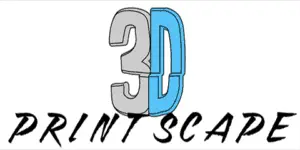New technologies tend to raise new questions about copyright and trademark laws regarding intellectual property. Big companies like The Lego Group are forced to keep up with the ever-changing landscape, and they put a lot of effort into protecting their designs and brand image. So, while advancements in 3D printing make it easier to recreate Legos, do you have to worry about breaking the law?
In most cases, 3D printing Lego pieces is not illegal, given that you don’t market your creations as genuine Lego products. However, The Lego Group has trademarked and copyrighted some of their designs, such as their human figurines, and reproducing them is against the law.
Still, fans of the toy company 3D print their own Lego pieces all the time, and there are some potential gray areas in terms of the law. In the rest of the article, I’ll look more closely at some of the legal barriers associated with creating and selling your own Lego pieces so that you can confidently print your own interlocking bricks.
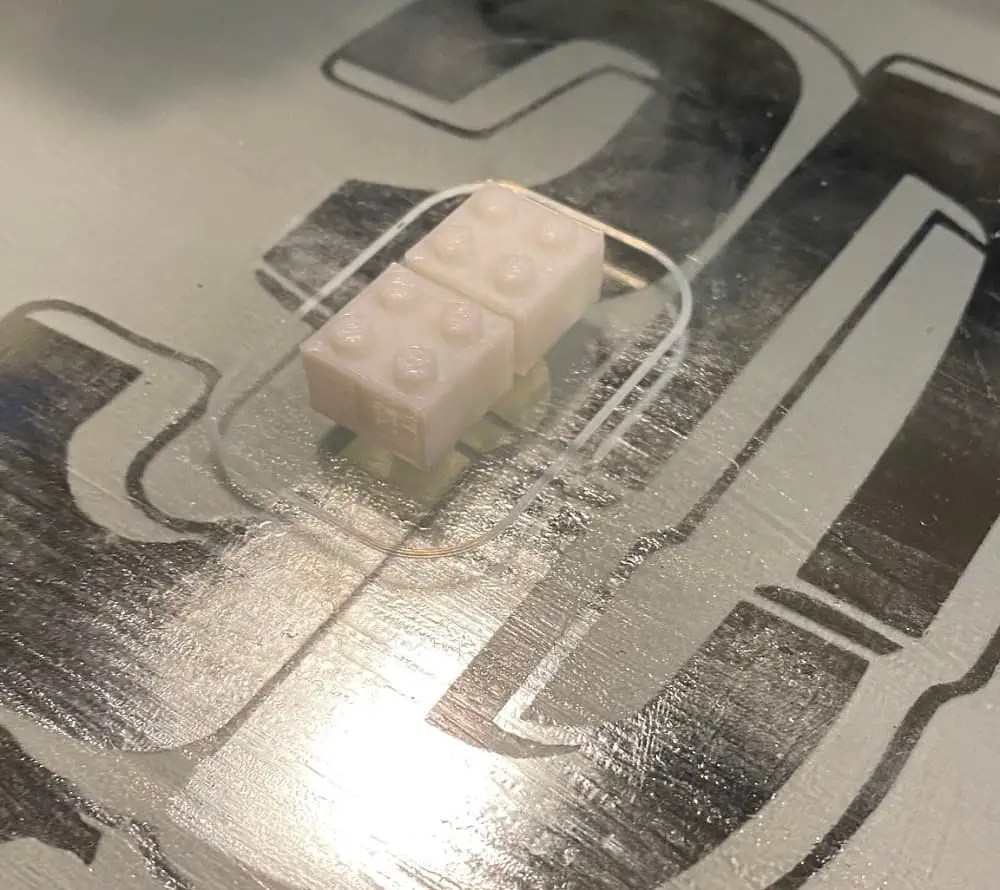
Which Lego Pieces Are Illegal to 3D Print?
The Lego Group’s original patent for the interlocking brick design expired in 1989, meaning there are no legal barriers to reproducing the classic building pieces.
However, you can’t legally copy any design protected by patents, copyrights, or trademarks without explicit permission from the company.
The Lego pieces that are illegal to print are:
- Lego mini-figurines
- Any patented element of a Lego building set
- Lego packaging and building instructions
- Anything marked with the Lego name or logo
Still, there are plenty of websites and online forums where enthusiasts post their 3D-printed Lego creations, some of which would arguably infringe upon some copyright or trademark. Pursuing these individuals often isn’t worth the hassle for a company like The Lego Group.
Some of the newer, more unique Lego bricks might also be patented, and The Lego Group has hundreds of patents on various features of their building systems.
The Lego Group also partners with other companies like Disney or DC Comics to bring specific figurines into the Lego universe. Reproducing these collaborations could also violate the rights of whoever owns the character or design.
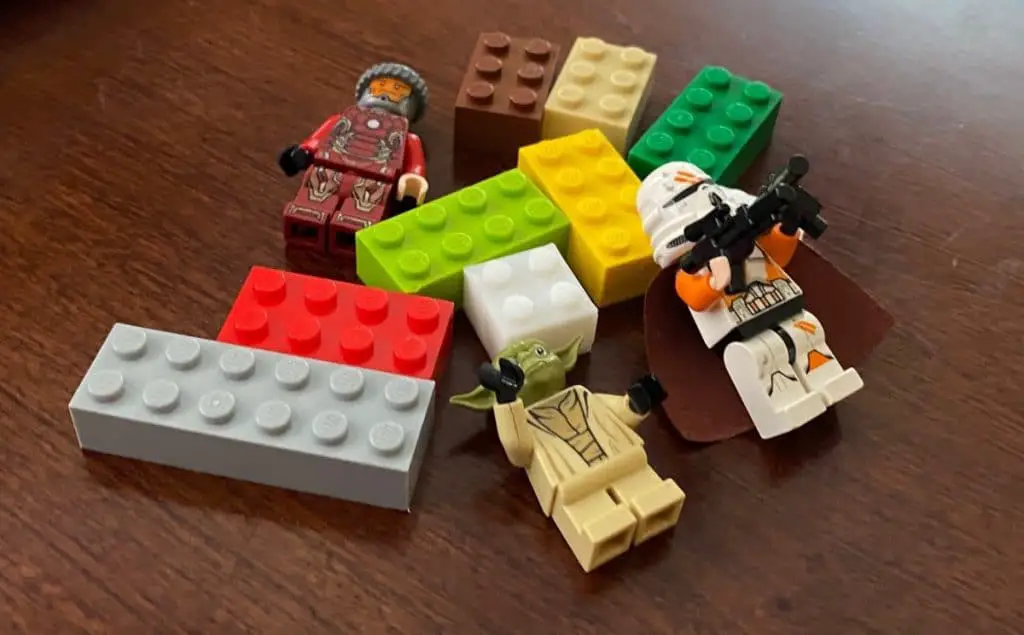
Legal Barriers for Lego Sets and Figurines
The Lego Group is notorious for holding tightly to their patents and trademarks, and they have won and lost countless legal battles over the years.
They have been unsuccessful at re-patenting the design for the interlocking brick. Still, The Lego Group won a key trademark battle in 2015 concerning the shape and structure of their iconic mini-figurines. The court ruling made it so that any replication of the Lego men and women is technically illegal.
While this protects The Lego Group from other companies who might want to replicate their design for profit, it would also mean that 3D printing copies of the mini-figurines aren’t entirely legal either.
Additionally, Lego sets might also be copyrighted or contain patented elements that could make them illegal to copy.
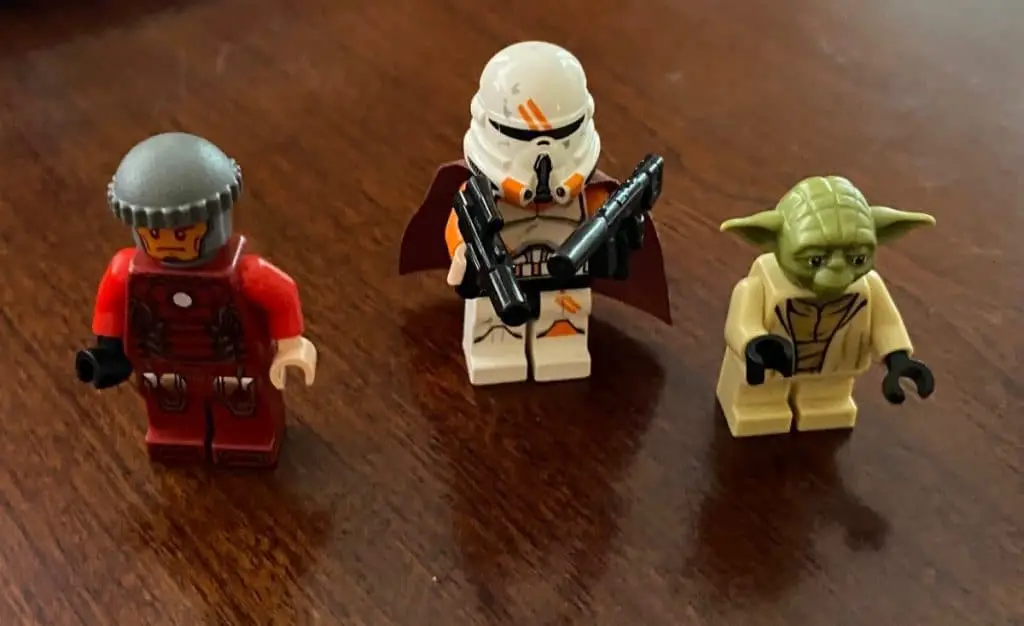
Are 3D-Printed Lego Pieces Considered Fan Art?
Many people would argue that 3D prints of copyrighted Lego material are considered “fan art,” similar to a drawing of a Star Wars character, for example. Some, however, wrongly assume that this makes reproducing the material okay.
While creating fan art doesn’t necessarily free you from the constraints of copyright law, many copyright owners are pretty tolerant of fan art creators, and some owners even encourage them.
A strong fan art community can be beneficial for the brand. Online posts of fan-created Lego toys are like free advertising, and they allow fans of the brand to interact with one another. Disrupting this community by taking its members to court might not be in the company’s best interest.
How Likely Are You To Get in Trouble?
Even if The Lego Group had grounds to take individuals to court for copyright infringement, it’s often not worth it for them to do that. Homemade Lego toys that aren’t being sold or distributed are mostly harmless.
If you print Legos for personal use, you aren’t likely to get in trouble. However, if you do get in trouble, the most likely response would be a DMCA takedown or a cease and desist letter. While these might not be common, The Lego Group has issued these in the past.
The company will send a DMCA notice to a website or individual if they want a post removed, but it usually stops there. If the company felt that a cease and desist letter was necessary after that, any further violations could result in other legal action.
As far as online postings of Lego products and Lego-related items go, The Lego Group has some pretty specific requirements that you can find here.
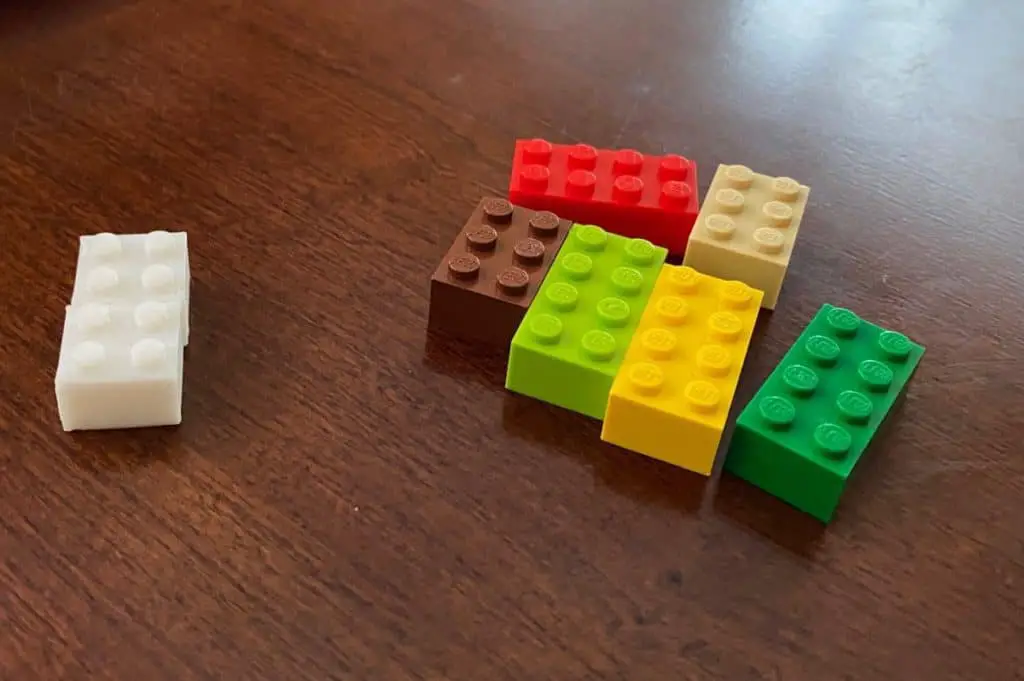
Selling Your 3D-Printed Lego Creations
Selling your 3D-printed toys isn’t always a legal issue, but doing so may ultimately draw more attention to yourself, especially if you’re selling in large quantities.
Since the expiration of the interlocking brick patent, anybody could technically reproduce and sell the basic building blocks under a different name. Companies like Mega Bloks have been doing this for years.
Still, the expired patent hasn’t stopped The Lego Group from taking its competitors to court, but they’ve consistently been denied the ability to trademark the basic brick design.
If you intend to sell your 3D prints, make sure of the following:
- You aren’t using the Lego logo
- You aren’t using the Lego name in a way that infringes upon the trademark
- You aren’t advertising the items as authentic Lego bricks
- You have permission to use the 3D model.
Unless you are designing the Lego brick model yourself, you would technically need permission to use any given 3D model.
There are many websites and online forums where enthusiasts freely provide their STL files in downloadable form. So, if you use these models to sell bricks or other Lego-like pieces, be sure to check with the content creator first.
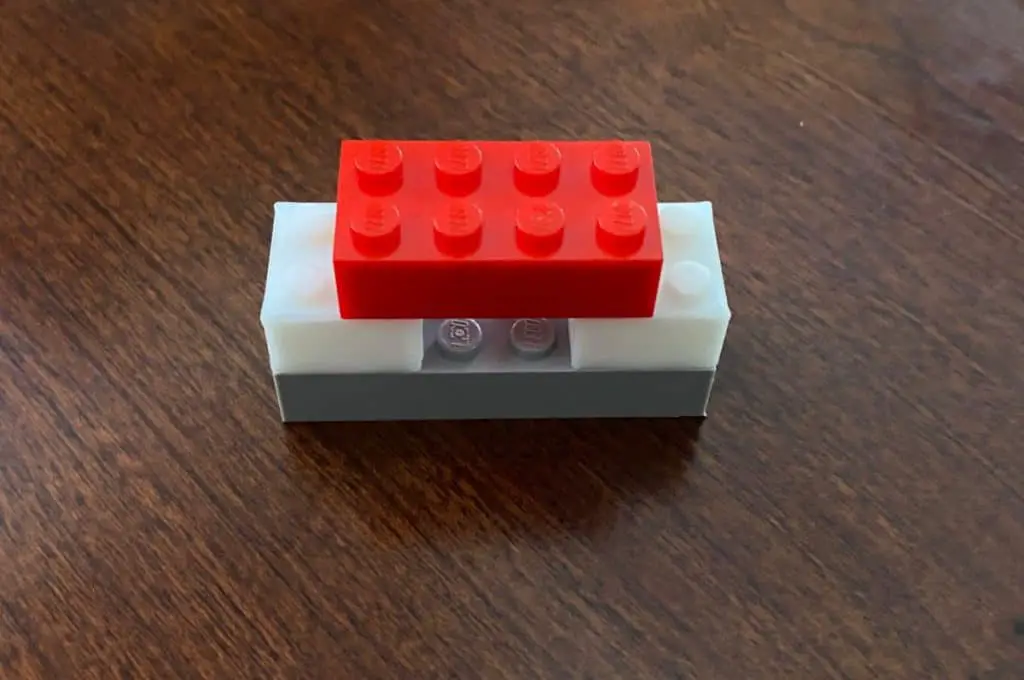
Related Articles
- Can a 3D Printer Print Anything?
- How to Print a File from Thingiverse (The Easy Way!)
- Create a Temperature Tower Using Cura – The Easy Way
- Cura Profiles
- Do 3D Printers Use a Lot of Power? (The Numbers Inside)
Bottom Line
3D printing your own Lego pieces isn’t always a legal issue, and private 3D printers have been reproducing Lego blocks at home for years. There are still a lot of copyright and trademark laws to be aware of, but unless you stand to profit from your creations, it’s unlikely that you’ll be stuck in a lawsuit with the company.
Make sure you check out our YouTube channel, and if you would like any additional details or have any questions, please leave a comment below or join us on Discord. If you liked this article and want to read others click here.
